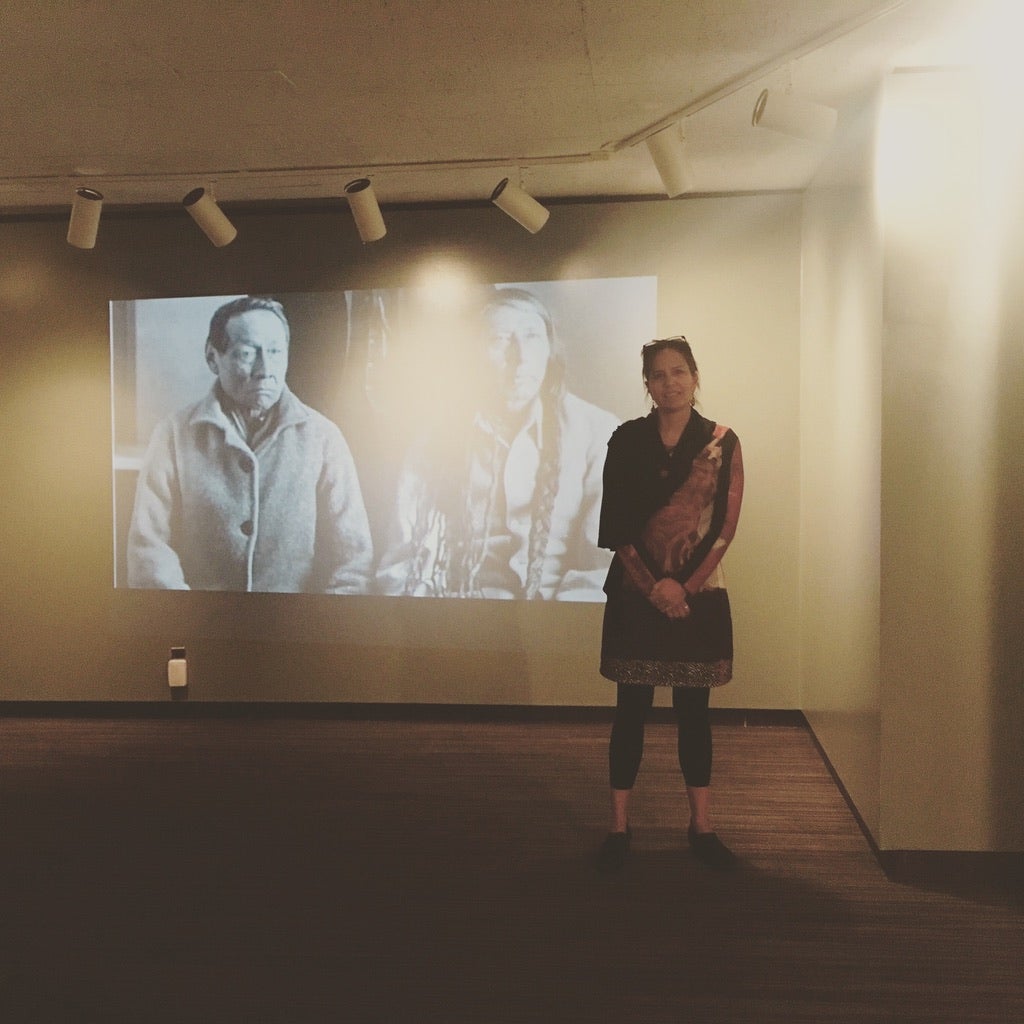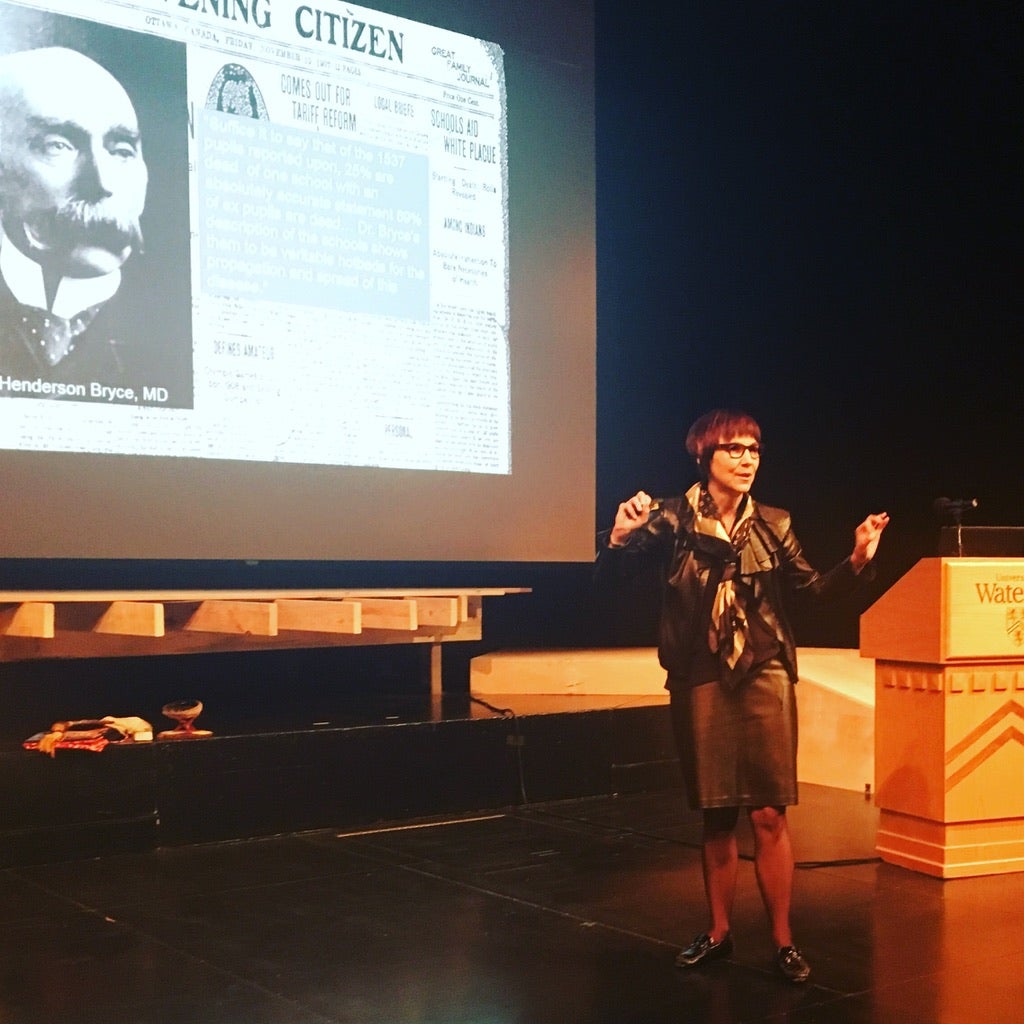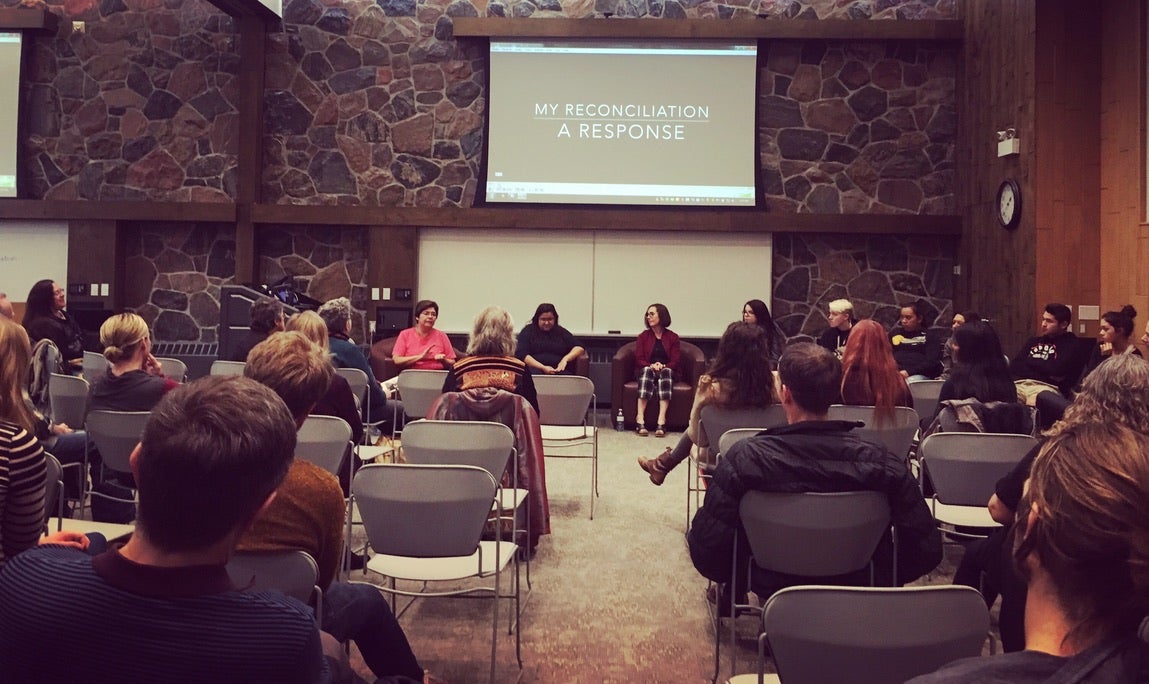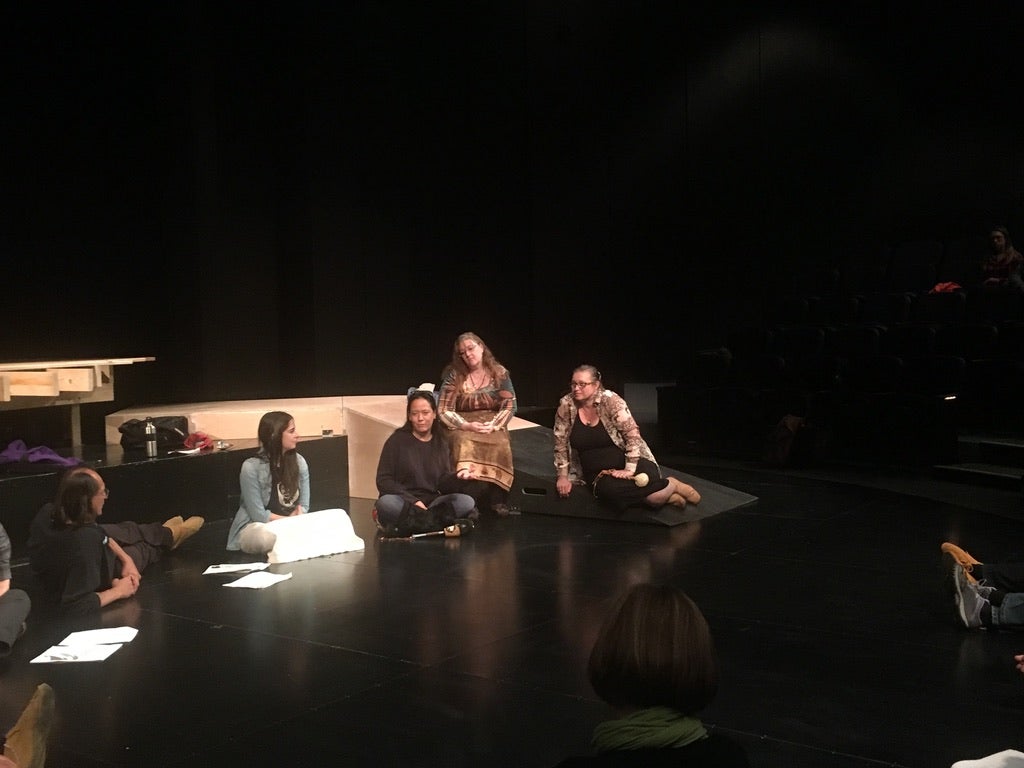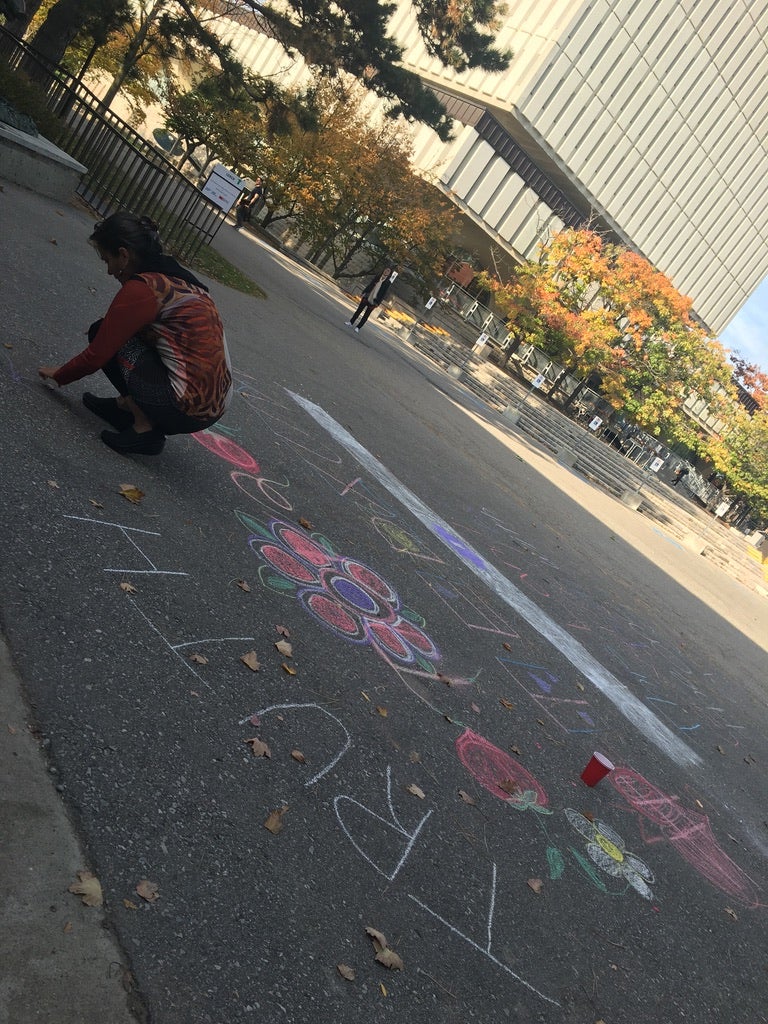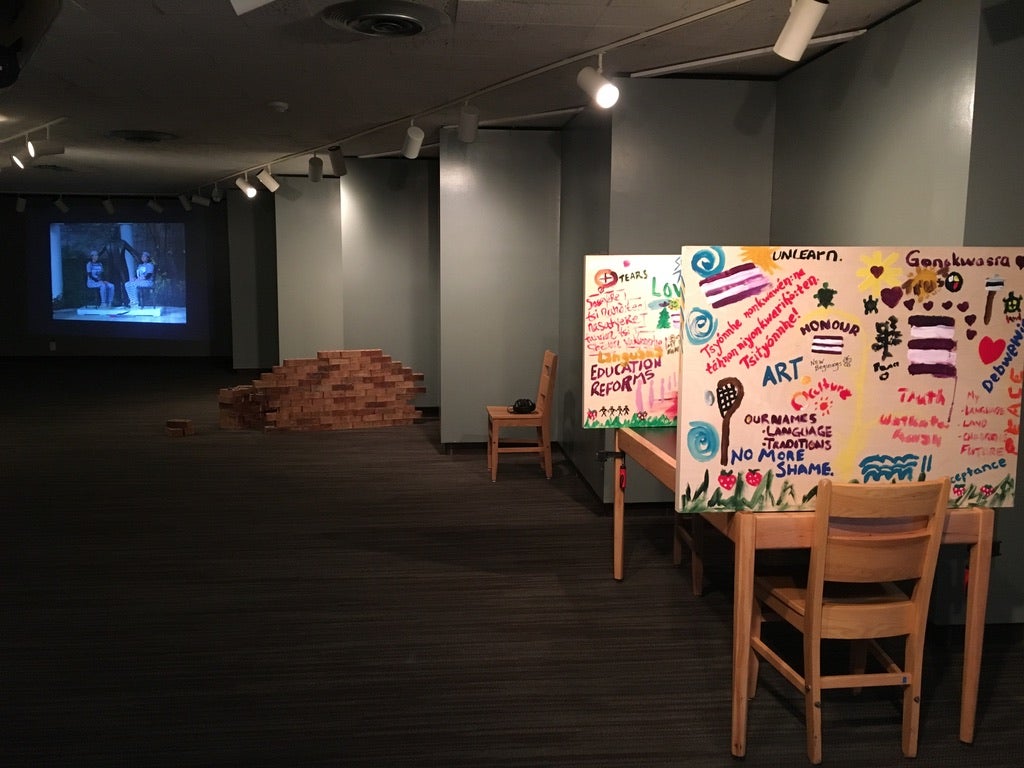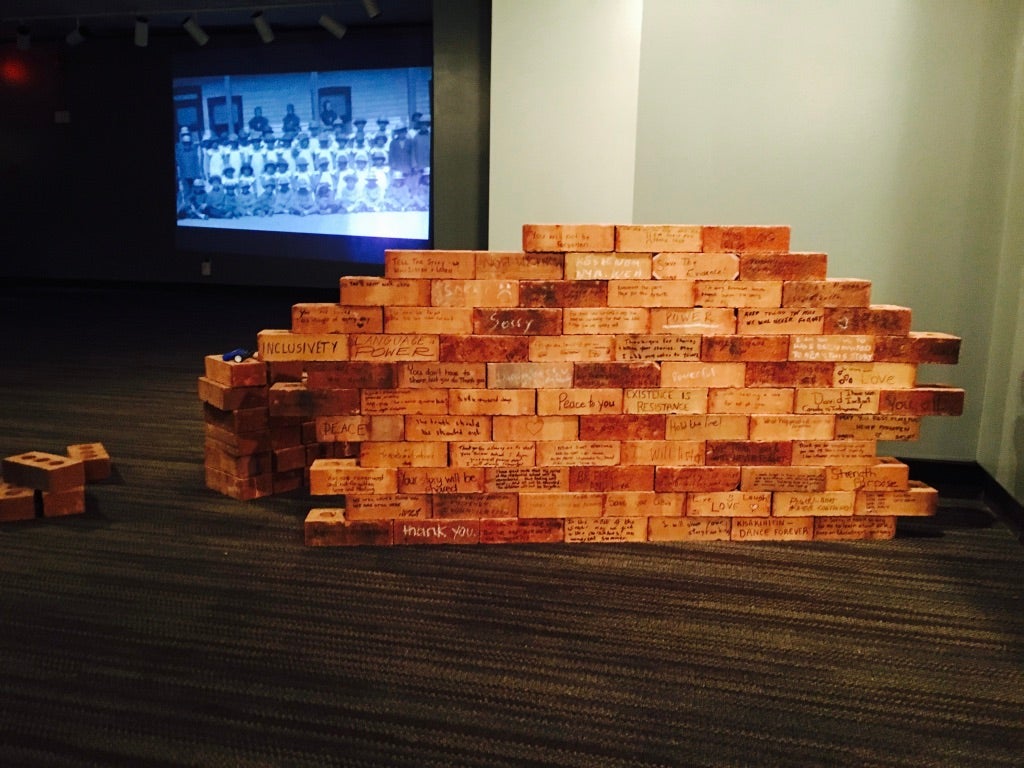When the Truth and Reconciliation Commission (TRC) of Canada released its findings and 94 Calls for Action in 2015, members of Arts worked with Indigenous partners to develop responses. This page summarizes two 2016 projects that involved numerous Indigenous and non-Indigenous organizations and individuals.

The Mush Hole Project, September 16-18, 2016
The Mush Hole Project was an immersive, site-specific art and performance installation event taking place at the Mohawk Institute Indian Residential School (the Mush Hole) and the Woodland Cultural Centre in Brantford, Ontario. Audiences were toured through the building by survivors of the school and along the way encountered performances, artworks, installations and other expressions and responses to the space and its dark history.
University of Waterloo professors Andy Houston and Sorouja Moll collaborated with Woodland Cultural Centre to co-lead the project and curate the 35 Indigenous and non-Indigenous artists, performers, archivists and researchers who presented their site-responsive works.
The project aimed to respond to the TRC’s Calls to Action and to preserve, query, and reveal the complex personal, political, and public narratives around Canada’s residential school system, in general, and the Mohawk Institute Indian Residential School.
Visit the Mush Hole Project archive for programming details.
The Mush Hole Project and Save the Evidence
The Mohawk Institute Indian Residential School building at the Woodland Cultural Centre has been providing in-depth and historically significant insight into the Residential School System for the past 44 years. The Mohawk Institute is one of the last residential schools still standing across Canada. With close to 10,000 visitors every year, tours and programs offer a distinctive look into First Nations and Canadian history. The Mush Hole Project aimed to raise awareness and encourage support for the Save the Evidence campaign, to ensure that the physical evidence of this dark chapter in Canadian history is never forgotten.

Integrating Knowledges Summit, October 14-16, 2016
Co-hosted by the Faculty of Arts and the Waterloo Aboriginal Education Centre (now the Waterloo Indigenous Student Centre, United College) , the summit was an intercultural calling-in of social justice advocates, community elders, researchers, artists, students, and many others both Indigenous and non-Indigenous. The broad goal of the summit was to respond to the TRC Calls to Action related to education, and to:
- mobilize debate and discussion,
- create spaces to share knowledges and research,
- access resources of new and renewed disciplines, methodologies, and practices,
- acknowledge the heterogeneity of Indigenous peoples and pedagogies,
- work together to decolonize ourselves and the structures of systemic oppression and exclusion.
Keynote address by Dr. Cindy Blackstock
The summit was opened with a keynote address by Dr. Cindy Blackstock, Executive Director of the First Nations Child, and Family Caring Society of Canada. Watch the video recording of the opening ceremony and Dr. Blackstock's address.
Summit highlights
- 3-Day Theatre Workshop: Performing Practice Truth & (Re)conciliation featuring actors Bruce Sinclair, PJ Prudat, Falen Johnson
- Youth Workshop: Mush Hole Project & Integrating Knowledges
- Elder-in-Residence: Jean Becker
- Nine circle discussions on summit themes
- Oral Storytelling by Rene Meshake
- Archive & Representation Installation + Workshop with Susan Roy and Ian Mosby
- Digital Storytelling Installation, “A Canadian Conversation,” by Kim Anderson
- TRC Reading Challenge
Full schedule of summit proceedings
Collaborative partners
- Woodland Cultural Centre (Brantford)
- Waterloo Aboriginal Education Centre, St. Paul’s University College
- Faculty of Arts, University of Waterloo,
- Department of Drama and Speech Communication
- Six Nations Polytechnic (Brantford)
- Chocolate Woman Collective (Toronto)
- Native Women in the Arts (Toronto)
- Art Gallery of Guelph (Guelph)
- Canadian Clay and Glass Gallery (Waterloo)
- Art Gallery of Burlington
- Research Entrepreneurs Accelerating Prosperity (REAP)
- Centre for Memory and Testimony Studies (Wilfrid Laurier University and partner universities)
Funding and support
The Integrating Knowledges Summit was made possible with the support of the University of Waterloo (Faculty of Arts), Waterloo Aboriginal Education Centre (St. Paul’s University College), SSHRC Connection Grant, Bob Harding Humanities and Social Sciences award, Ontario Arts Council, Research Entrepreneurs Accelerating Prosperity (REAP), Department of Drama and Speech Communication, Centre for Memory and Testimony Studies (Wilfrid Laurier University and partner universities), and the generous contributions from many collaborating organizations and individuals.








